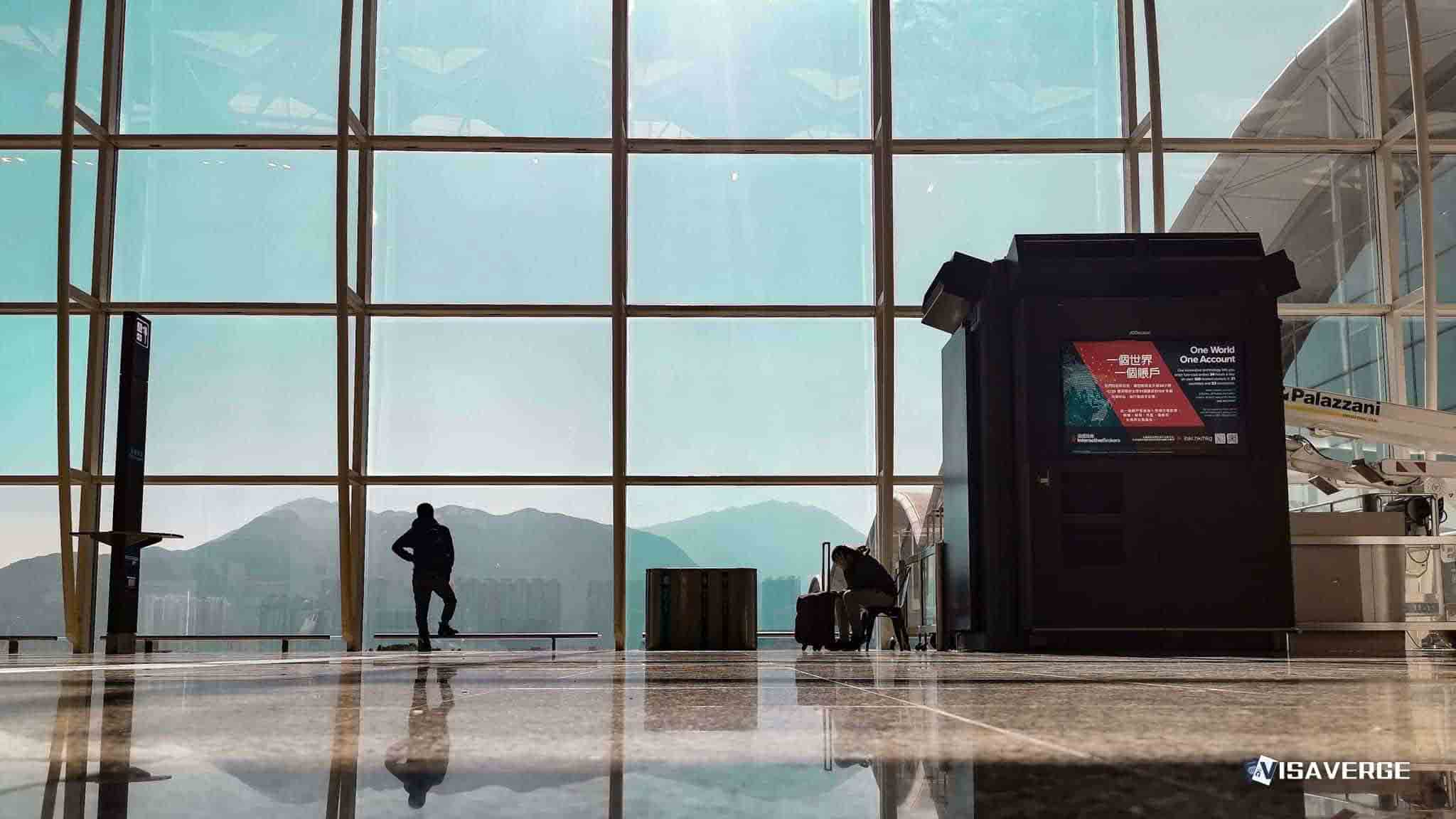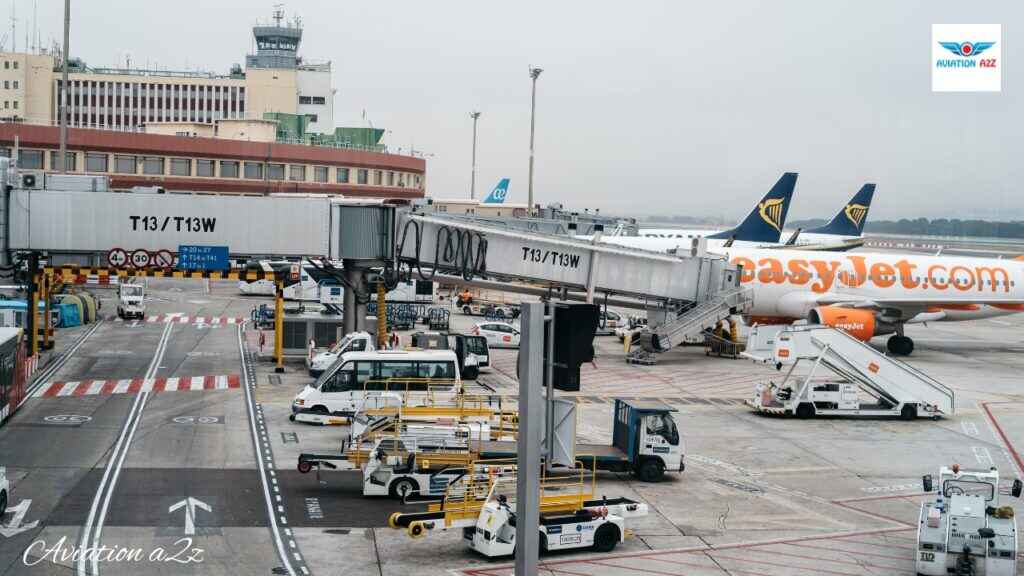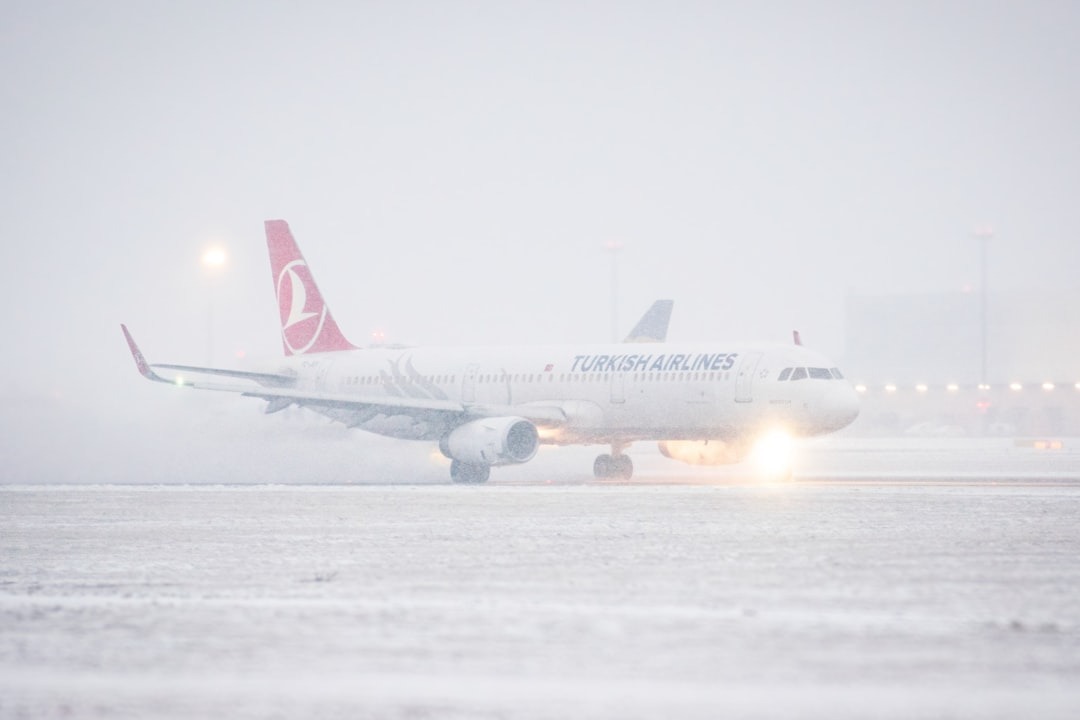Key Takeaways
• Passenger’s bomb joke on Alaska Airlines Flight 2123 caused runway closures at Seattle-Tacoma on June 14, 2025.
• Law enforcement arrested the suspect; thorough security sweep found no real threat or suspicious items.
• Incident delayed flights, canceled six, diverted two, highlighting strict post-9/11 threat protocols at US airports.
A passenger’s “flippant” remark about a bomb on board Alaska Airlines Flight 2123 led to a major security response at Seattle-Tacoma International Airport on June 14, 2025. The incident, which unfolded just before takeoff, resulted in the arrest of the passenger, the closure of two runways, and significant delays for travelers. Authorities stress that even jokes about threats are treated as real until proven otherwise, highlighting the seriousness with which airport security handles such situations.
What Happened on Alaska Airlines Flight 2123?

On the afternoon of June 14, 2025, Alaska Airlines Flight 2123, operated by Horizon Air, was preparing to depart Seattle-Tacoma International Airport (SEA) for Walla Walla, Washington. There were 68 passengers and four crew members on board. As the plane taxied toward the runway, a passenger made a comment to a flight attendant about having a bomb. Although the remark was described as “flippant”—meaning it may have been intended as a joke or offhand comment—crew members immediately reported it as a direct threat.
Following strict safety protocols, the pilots halted the aircraft on runway 16R/34L, which is the runway farthest from the terminal. This immediate action is standard whenever there is a potential threat to ensure the safety of everyone at the airport.
How Did Authorities Respond?
Once the threat was reported, the response was swift and thorough:
- Law enforcement agencies, including the Port of Seattle Police and the FBI, were notified and responded to the scene.
- The suspect was taken into custody at approximately 12:15 p.m. The individual’s identity has not been released as of June 15, 2025.
- All passengers and crew were safely deplaned and returned to the terminal after a security screening.
- K9 units and security teams conducted a careful inspection of the aircraft and all baggage. No suspicious items or evidence of a real threat were found.
The incident led to the closure of two runways (16R and 16C), causing at least six flight cancellations and two diversions. The center runway reopened at 1:45 p.m., and normal operations resumed by 3:15 p.m.
Why Are Such Remarks Taken So Seriously?
After the events of September 11, 2001, airport and airline security in the United States 🇺🇸 became much stricter. Any mention of bombs, weapons, or threats—no matter the context—is treated as a direct threat. This approach is not just about following rules; it’s about protecting lives.
Security experts and law enforcement officials explain that even if a comment is meant as a joke, it can cause panic, disrupt airport operations, and put many people at risk. As reported by VisaVerge.com, these incidents are disruptive, costly, and can lead to federal charges for the person responsible.
Step-by-Step: What Happens When a Threat Is Made?
When a threat is reported on an aircraft, there is a clear process that airlines and airports follow:
- Threat Reported: The crew receives and immediately reports the threat to the pilots and ground authorities.
- Aircraft Isolated: The plane is moved to a remote runway, away from terminals and other planes, to minimize risk.
- Law Enforcement Notified: Local police and federal agencies, such as the FBI, respond to the scene.
- Passenger Deplaning: All passengers and crew are safely taken off the plane and returned to the terminal after security checks.
- Security Sweep: K9 units and security personnel inspect the aircraft and all baggage for any dangerous items.
- Runway and Aircraft Clearance: Once the plane is cleared, it is towed back to the terminal, and runways are reopened.
- Investigation and Prosecution: Authorities review the evidence and decide if charges will be filed against the person who made the threat.
This process is designed to keep everyone safe and ensure that any possible danger is handled quickly and effectively.
Impact on Passengers and Airport Operations
The incident on Alaska Airlines Flight 2123 caused significant disruption at Seattle-Tacoma International Airport. Here’s how it affected different groups:
Passengers
- Delays and Cancellations: At least six flights were canceled, and two were diverted to other airports. Many travelers faced long waits and had to change their plans.
- Safety and Communication: Passengers on Flight 2123 were kept safe and informed throughout the process. Alaska Airlines worked to rebook affected travelers and provided updates as the situation developed.
Airlines
- Operational Challenges: Alaska Airlines praised its crew for following procedures and emphasized that passenger safety is always the top priority.
- Rebooking and Customer Service: The airline’s customer service teams worked to help passengers whose flights were delayed or canceled.
Airport Operations
- Runway Closures: Two of the airport’s three main runways were closed for several hours, causing a ripple effect of delays and cancellations.
- Coordination with Law Enforcement: Airport officials worked closely with police and the FBI to manage the situation and keep the public informed.
Law Enforcement
- Zero-Tolerance Policy: Both the Port of Seattle Police and the FBI stressed that all threats are investigated thoroughly, regardless of the intent behind them.
- Ongoing Investigation: As of June 15, 2025, the suspect remains in custody, and authorities are deciding whether to file charges.
Legal and Immigration Consequences
Making a threat—real or fake—on an airplane is a serious crime under United States 🇺🇸 federal law. Even if someone claims they were joking, they can be arrested, investigated, and face prosecution. This can lead to:
- Criminal Charges: The person may be charged with making a false threat or other related crimes. These charges can carry heavy fines and even prison time.
- Immigration Consequences: For non-citizens, being arrested or convicted of such an offense can have serious immigration consequences. It may lead to deportation, denial of future visas, or being barred from re-entering the United States 🇺🇸.
- Permanent Record: A conviction for making a threat on an aircraft can stay on a person’s record for life, affecting job prospects and travel opportunities.
For more information about federal laws related to threats on aircraft, you can visit the Federal Aviation Administration’s official page on unruly passengers.
Why Do Airports Use Such Strict Protocols?
Airports like Seattle-Tacoma International Airport have strict protocols for several reasons:
- Passenger Safety: The main goal is to protect everyone on the plane and at the airport.
- Preventing Panic: Quick, clear action helps prevent panic among travelers and staff.
- Legal Requirements: Federal law requires airlines and airports to treat all threats as real until proven otherwise.
- Deterrence: Strict responses discourage others from making similar remarks, even as a joke.
These protocols have been developed over many years and are regularly reviewed to make sure they are effective.
Historical Context: How Have Threats Been Handled in the Past?
Threats or jokes about bombs on airplanes have always been taken seriously, but the approach became much stricter after the terrorist attacks of September 11, 2001. Since then, the Transportation Security Administration (TSA) and airlines have worked together to create clear rules for handling threats.
- Immediate Law Enforcement Involvement: Police and federal agents are always called in to investigate.
- Operational Shutdowns: Runways and terminals may be closed if there is any risk to safety.
- Passenger Awareness: Airlines and airports regularly remind travelers not to make jokes or comments about threats.
The incident at Seattle-Tacoma International Airport is consistent with how similar situations have been handled across the United States 🇺🇸.
Official Statements and Stakeholder Perspectives
Port of Seattle Police
The Port of Seattle Police led the response and investigation. They confirmed the arrest and emphasized that all threats are treated with the highest level of seriousness, regardless of the intent behind them.
FBI Seattle
The FBI worked alongside local police and is helping to review the case. They will decide if federal charges should be filed against the suspect.
Alaska Airlines
Alaska Airlines confirmed the incident and praised the crew for following all safety procedures. The airline is working to rebook affected passengers and has offered support to those impacted by the delays.
SEA Airport Officials
Airport officials provided regular updates and coordinated with airlines and law enforcement to manage the situation and keep travelers informed.
Policy Implications and Future Outlook
As of June 15, 2025, there have been no immediate changes to airport or airline security policies as a result of this incident. However, officials have reiterated that:
- All threats are treated as real until proven otherwise.
- Passengers who make such remarks can be arrested and prosecuted, even if they claim it was a joke.
- Operational disruptions—including runway closures, flight delays, and cancellations—are likely whenever a threat is reported.
While no new policies have been announced, airlines and airports may review crew training and passenger communication protocols. There may also be renewed efforts to educate the public about the consequences of making inappropriate remarks on aircraft.
What Should Passengers Know?
If you are traveling by air, it’s important to remember:
- Never make jokes or comments about bombs, weapons, or threats—even if you think it’s harmless.
- Follow all crew instructions and report any suspicious behavior to airline staff.
- Understand that law enforcement will respond quickly to any reported threat, and you may face arrest and prosecution.
For travelers with immigration concerns, remember that being involved in a security incident can have serious consequences for your status in the United States 🇺🇸. If you have questions about your rights or need legal help, consult with an immigration attorney or contact the U.S. Citizenship and Immigration Services (USCIS) for guidance.
Summary Table: Key Facts from the Incident
| Item | Details |
|---|---|
| Date of Incident | June 14, 2025 |
| Airline/Flight | Alaska Airlines Flight 2123 (Horizon Air) |
| Passengers/Crew | 68 passengers, 4 crew |
| Nature of Threat | “Flippant” bomb remark by passenger |
| Law Enforcement Response | Port of Seattle Police, FBI |
| Aircraft Action | Isolated on remote runway, deplaned |
| Flights Affected | 6 canceled, 2 diverted |
| Runways Closed | 2 (16R/16C), 1 open (16L) |
| Suspect Status | In custody, pending charges |
| Security Outcome | No suspicious items found, aircraft cleared |
Practical Guidance for Travelers
- Arrive early at the airport to allow time for security checks.
- Listen carefully to all announcements and instructions from airline staff.
- Avoid making any comments that could be misunderstood as a threat.
- If you witness suspicious behavior, report it immediately to airport or airline staff.
Where to Find More Information
For official updates and resources related to this incident and airport security procedures, visit the Port of Seattle’s official incident page.
If you need to check your flight status or rebook a canceled flight, contact Alaska Airlines customer service.
For information on security and identification requirements, visit the TSA website.
Conclusion
The incident involving Alaska Airlines Flight 2123 at Seattle-Tacoma International Airport serves as a clear reminder that all threats—real or joking—are treated with the utmost seriousness. The coordinated response by law enforcement, airport officials, and airline staff ensured the safety of everyone involved, but also caused significant disruption for travelers. Passengers should be aware of the serious consequences of making inappropriate remarks and always follow safety protocols when flying. As analysis from VisaVerge.com suggests, these strict procedures are in place to protect lives and keep air travel safe for everyone.
Learn Today
Flippant → A casual or offhand remark often lacking proper seriousness, sometimes misunderstood as a real threat.
Direct Threat → A statement or behavior indicating immediate risk, treated seriously by airport security and law enforcement.
Deplaning → The process of passengers safely exiting an aircraft, especially during security or emergency responses.
Runway Closure → Temporary blocking of airport landing and takeoff paths to ensure safety during security incidents.
Immigration Consequences → Legal effects on non-citizens, including visa denial or deportation, following criminal charges.
This Article in a Nutshell
A joke about a bomb on Alaska Airlines Flight 2123 triggered a major security response on June 14, 2025. Multiple runways closed, flights were canceled or diverted, and a suspect was arrested. Authorities emphasize all threats are treated seriously to protect safety and prevent disruption in air travel.
— By VisaVerge.com













